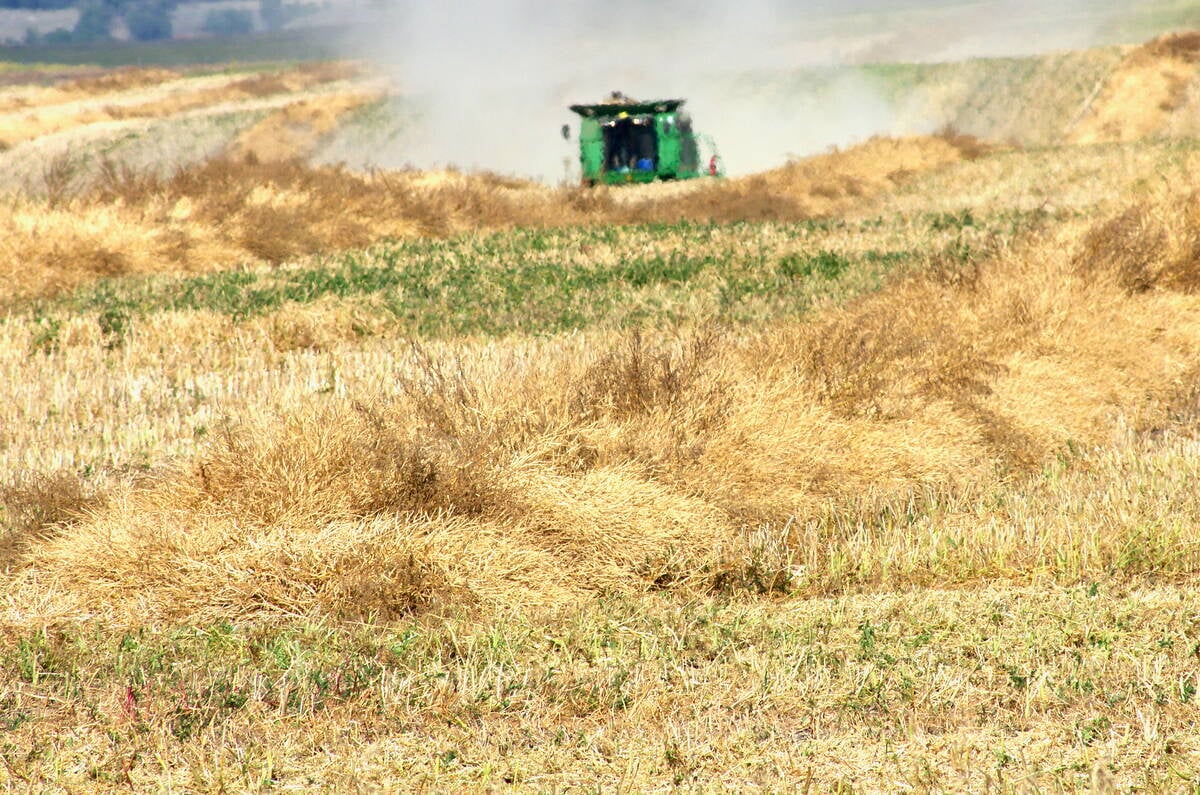Glacier FarmMedia – Most of Manitoba’s canola oil, upwards of 89 per cent, has historically headed to American buyers.
With trade relations with the United States on the rocks, however, the province is looking for alternatives.
A new report explores Manitoba’s current canola oil trade and possible alternative markets to the U.S.
Read Also

Russian wheat exports start to pick up the pace
Russia has had a slow start for its 2025-26 wheat export program, but the pace is starting to pick up and that is a bearish factor for prices.
According to the province, Manitoba’s canola oil trade has been worth $5.3 billion over the past five years. The U.S. accounted for $4.7 billion of those sales.
The next-best — and only significant — alternative, Mexico, has been a distant second.
Between 2020 and 2024, that nation imported $590.2 million worth of Manitoba canola oil. Numbers surged in 2021 and 2022, increasing from 2020 levels of $75. 6 million to more than $180 million both years. However, in the last two years, levels have dropped again, and in 2024, Mexico bought only $66.2 million worth of Manitoba canola oil.
In total, the province exported 2.75 million tonnes of canola oil during the five-year span, with American buyers taking 2.4 million tonnes and Mexican buyers taking more than 300,000. Other destinations included small volumes to South Korea, Japan, France and several other countries, each representing less than 0.1 per cent of total exports.
Mexico is still a promising alternative market, the province said, noting its 18 per cent global growth rate in canola oil imports. South Korea also presents opportunities, despite recent declines in Canadian shipments to that country.
Major business hit
Canola is major export business for the province. Last year’s trade reports put oilseeds and oilseed products, of which canola makes the bulk, at 28.3 per cent of all Manitoba agri-food exports in 2024, the largest of any category. Between canola seed and canola products such as oil, the sector accounted for 90.5 per cent of the province’s $2.68 billion in oilseed-related exports last year.
Canola is also one of the province’s top crops, with Manitoba farmers planting about three million acres of canola, about 14.1 per cent of Canada’s total canola acreage. The province processes roughly half its canola seed into oil and meal, while exporting the remainder.
Both raw seed and processed oil and meal are now in market peril.
Trade tensions continue between Canada and the United States, while China, which does comparatively less business with Canadian canola oil but is a top customer for seed, has slammed the doors on those markets — duties on oil and meal earlier this year and a 75.8 per cent tariff on seed in August.
Globally, the U.S. is the world’s biggest canola oil importer, taking in $23.6 billion worth from 2020-24 ($23 billion of which came from Canada), followed by China at $13.5 billion and the Netherlands at $8 billion.
While canola oil’s heavy U.S. reliance has been a wake-up call, efforts to diversify have been underway for years, said Warren Ellis, board chair of Manitoba Canola Growers.
“While it is our biggest trading partner, it isn’t our only one,” Ellis said.
“It’s not like we haven’t been working to diversify the market and to expand the marketplace.”
Mexico is a sensible option for growth, Ellis said.
“It’s a market that is valuable to us in that it gives us one more place to sell our product. It’s within North America, and we’re doing a lot of trade in other products as well with Mexico. So, this, I think, is a natural fit.”
Signs of market diversification emerge
Early data from 2025 underscores Ellis’s comments on diversification. During the first five months of the year, Mexico’s share of Manitoba’s canola oil exports increased to 15.6 per cent, up from the historical average of 11 per cent.
Canada shows greater market diversification than Manitoba. National exports of $28.5 billion over five years were distributed among more countries, with the U.S. taking 80.7 per cent, China receiving 9.5 per cent and Mexico accounting for 4.7 per cent, Manitoba Agriculture said.
Like provincial trends, Canadian export patterns also shifted notably in early 2025. The American share dropped to 64.5 per cent of volume, compared to 95 per cent historically. New destinations included Belgium, Peru, Malaysia and Chile.
Domestic biofuel opportunities
Ellis believes the most promising growth opportunity lies not necessarily overseas, but within Canada itself.
“The sort of slam-dunk obvious one is biofuels,” he said.
“That is an incredible opportunity to expand the use of canola but also expand the industry within Manitoba, within Canada … if they just use canola as a feedstock. That’s what Manitoba Canola Growers, along with our partners, has been pushing for.”
Industry experts warn, however, that diversification away from traditional markets represents a massive undertaking. Farm Credit Canada estimates that reducing U.S. market dependence to 50 per cent across all agricultural and food sectors would require redirecting approximately $12 billion worth of exports.
Industry support announcements made by prime minister Mark Carney early last month in the wake of the ongoing dispute with China, starred biofuels. The aid package included $370 million in biofuel production incentives, as well as jumpstarting the interest-free portion of the Advanced Payments Program from $250,000 to $500,000.
Industry welcomed that investment into biofuels but panned the latter move, with Canola Council of Canada president Chris Davidson saying the measures “do not reflect the seriousness of the challenge facing the value chain.”
Added Ellis: “In terms of what they said for biofuels, it’s a good start, but it’s by no means sufficient for what is required.… In terms of … the increase in the cash advance dollars, you know, I’m sure their heart’s in the right place, but asking farmers to borrow more money for a political problem is not the right answer.”
Producers urged to be cautiously optimistic
What the industry needs most, Ellis said, is certainty.
“Business markets do not respond to uncertainty. In Canada, in the canola industry, specifically … we operate on laws and rules of trade, and it is these things that we depend on and that give the market stability and predictability, and those two things are critical.”
Despite the turmoil, Ellis said he remains cautiously optimistic. The Chinese market is too big to lose for long, he said, despite reports that suggest China is looking for canola trading alternatives, including reopening trade with Australia for the oilseed.
“This too shall pass. I do believe that whatever is happening today, we will get through this,” Ellis said.
“Farmers have to keep in mind that we do have the best quality product in the world, and so quality sells, and in the long run, this is going to work itself out.”
















